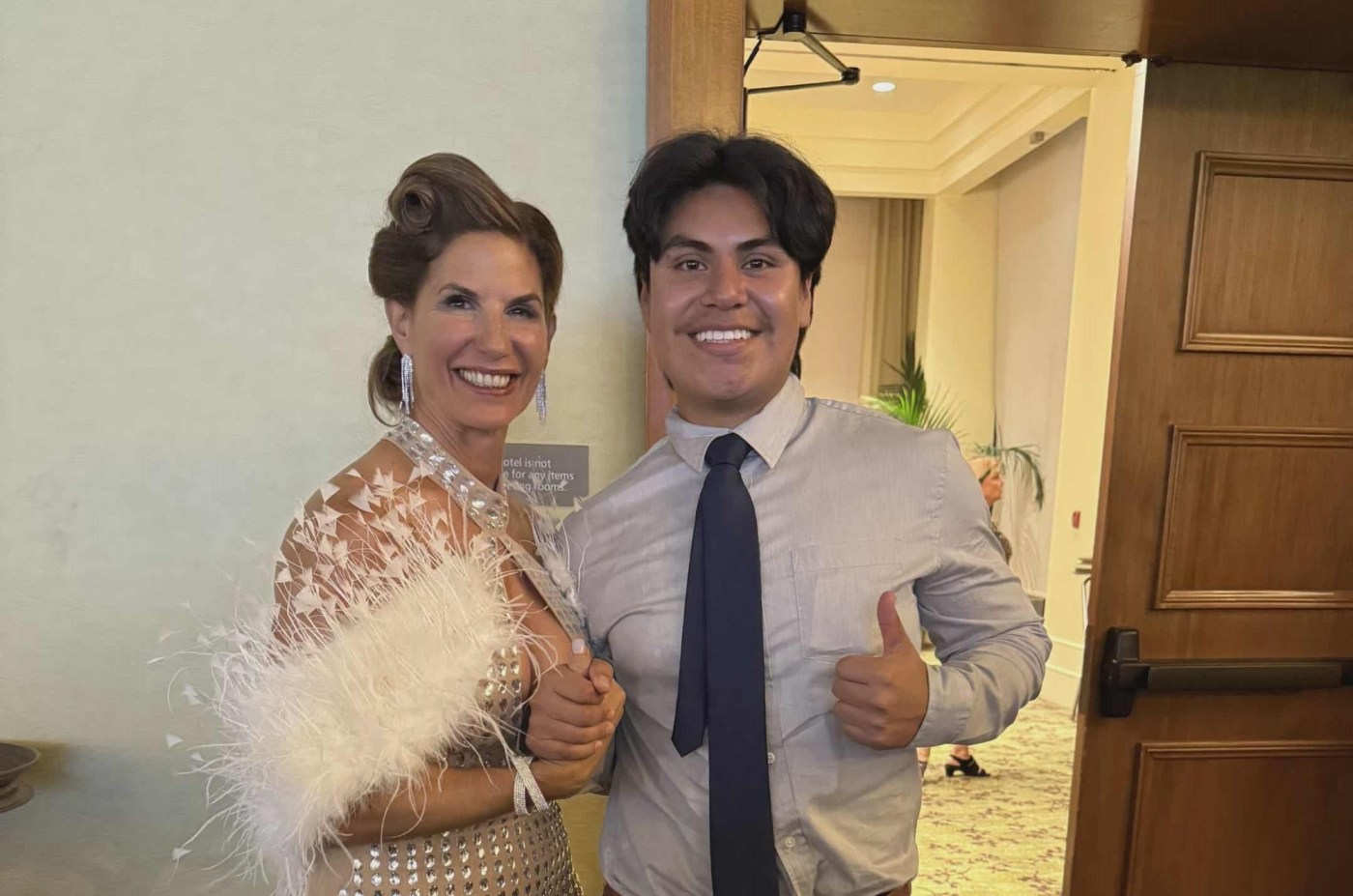Operation Helping Hands, an Orange County nonprofit that offers scholarships to unhoused or housing-insecure community college students in Southern California, is set to expand.
Over the past four years, Operation Helping Hands has worked with Santiago Canyon College and seven other community colleges, awarding scholarships of $1,000 a month for housing to 15 students who were unhoused or housing-insecure. Due to its recent first successful fundraising effort, it will now be able offer scholarships to many more.
Fernando Romero Cruz, 20, a graduate of Santiago Canyon College, is one recipient of the Operation Helping Hands scholarship. He’d been living with his sister and her small children, as well as other family members, and was sleeping in her living room while struggling to keep up with school work and holding down a campus job.
“There were 11 people in the apartment,” Cruz said. “My nephews were 6 and 8 and 12, and most of the time they were going to sleep at midnight, and I could not sleep until they were asleep.” He would wake up at 6 a.m. and walk 40 minutes to his classes at SCC.
His boss at the campus job told him about the Operation Helping Hands scholarship and Cruz applied. When he was awarded the scholarship, he was able to rent a room closer to campus and finally have peace and quiet to study and to sleep through the night.
“I was able to sleep eight hours — it made a big impact in my academics,” Cruz said. “I wasn’t tired going to school anymore.” With a regular sleep schedule, Cruz challenged himself to get a 4.0 GPA — “And I did!”
He graduated from SCC last May and is now at UCLA, studying Spanish and linguistics while he also works at a job.
“I am the living proof that when students’ basic needs are met, they can incredibly perform academically,” he said. “Basic needs for students are a big factor in their academics.” He hopes to be a community college professor.
Kim Valentine, the founder of Operation Helping Hands, which works out of her law firm, said that students who are awarded the scholarships must meet specific criteria. “They have to be enrolled in nine units and have a cumulative GPA of 2.9 or above,” she said.
Other factors are considered, too. “We look at their likelihood to transfer to a four-year university because they have a set career plan or they are going to be able to graduate with what is necessary to get a job in a field such as computer science,” Valentine said. She works with the colleges to identify potential scholarship candidates among their students.
Another consideration is how many other people might be positively affected by a student’s academic success — like the 11 members of Cruz’s family, many of whom are children.
“I am the first in my family to go to college, so I am the image for my nephews and siblings,” Cruz said. “They can picture themselves going to university. No one in my family has done it.”
Valentine looks for students who are also likely to pay their success forward. “We ask if they won the lottery and never had to work, what would they do with their time. The majority of students who are in difficult life situations are very automatic in saying ‘I would finish my degree and start a nonprofit or find a way to give back,’” she said.
Operation Helping Hands, which began 16 years ago, also coordinates high school students to fill thousands of backpacks full of hygiene items each year to distribute to homeless people in several Southern California counties. The nonprofit’s recent first gala was attended by 400 people, raising funds that will be used for more scholarships to community college students.
Valentine is open about the fact that she experienced homelessness as a teenager, which is one reason why this program is so important to her. “Our general public has this perception that most (homeless) are just drug addicts and alcoholics who’ve made really horrible choices, and certainly there is a percentage of that,” she said. “But there are also these diamonds in the rough, some incredibly amazing people.”
She sees her work as offering students an opportunity to help themselves. “I don’t look at it like we’re saving students,” she said. “They still have to show up and persevere and maintain their GPA and do nine units. And every one of these students is holding down multiple jobs. The juggling they’re doing in life is so much harder than most people recognize. I want the credit really to go to them — they’re saving themselves.”
